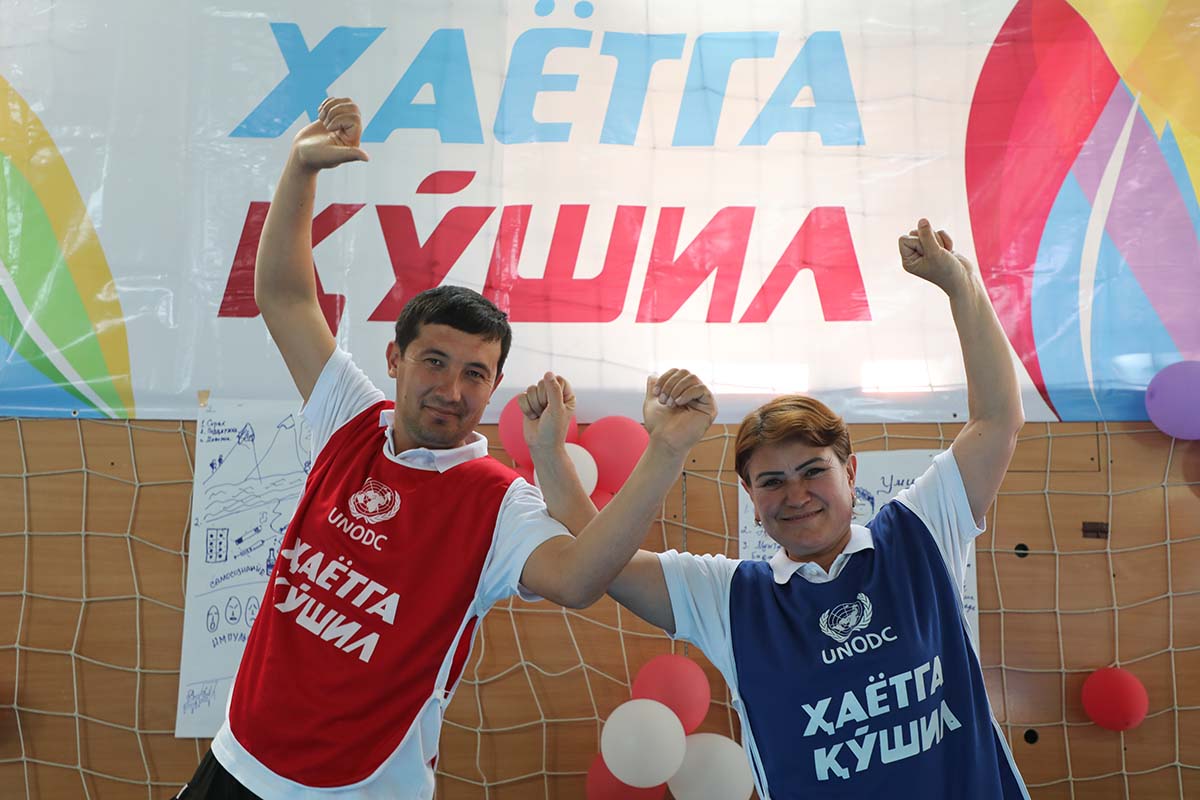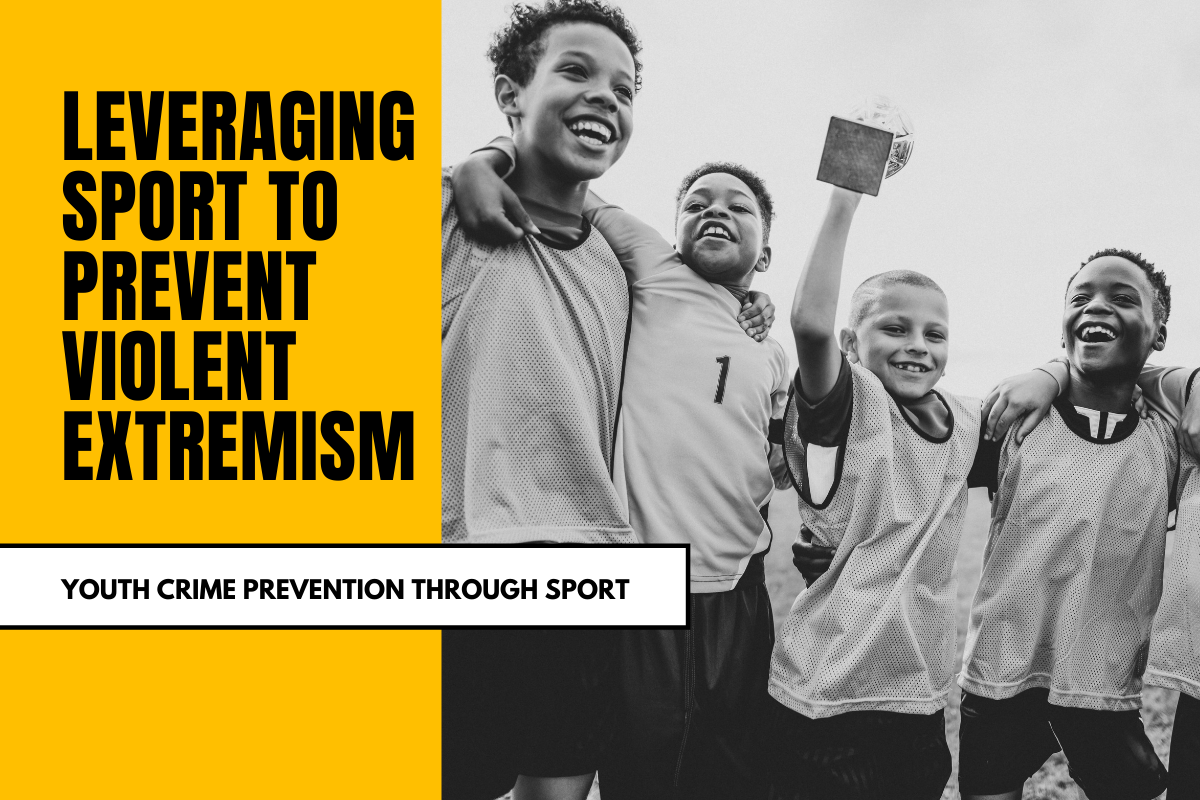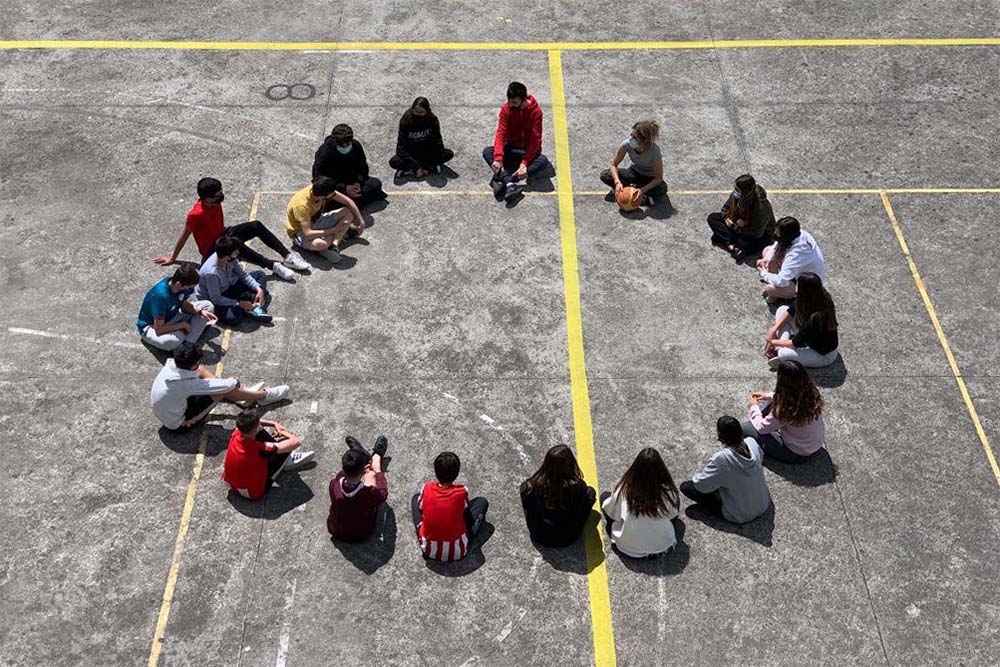UNODC forges new partnerships in Peru to advance youth crime prevention through sport, despite the pandemic
18 February 2021 – Countries around the world are grappling with the many harmful effects of the COVID-19 pandemic, including health and socio-economic impacts. Peru is one of the countries in Latin America and the Caribbean most severely affected by COVID-19 in terms of public health outcomes. The social and economic impact is also considerable, and young people are extremely vulnerable to the disruptions the pandemic has caused, with major effects on their education, economic opportunities, and well-being. Many of the hardships faced by young people during the COVID-19 crisis are also known risk factors associated with crime, violence and drug use, and may expose youth to increased risks for victimization and involvement with crime during and after the pandemic. In Peru, the state of emergency that came into force in March 2020 is still ongoing today, limiting opportunities for education, community engagement and support services for young people.
To contribute to the global effort required to continue supporting and engaging youth during the COVID-19 era, UNODC, through new partnerships with key actors in the sports and youth areas in Peru, has been strengthening the capacity of the sport sector and local authorities to deliver sports and community-based interventions as soon as the pandemic allows. Such interventions will help to address the increased vulnerabilities of youth and provide opportunities for positive development and social interaction.
In August 2020, the Office signed a partnership agreement with the National Youth Secretariat (SENAJU) and launched the initiative Agents of Change for Education, geared towards strengthening young leaders and their capacity to promote a culture of peace. As part of this initiative, UNODC and SENAJU jointly organized a series of online events on the use of sport and art as tools to prevent youth crime and violence, to promote participation and social cohesion, reaching a virtual audience of nearly 60,000 people. The events highlighted the organizational capacity of young people and the positive impact that their initiatives generate in communities and schools across Peru, with a focus on projects on social transformation through sports, recreation and physical activity. Speakers also touched on several sport management initiatives in which gender and youth approaches enabled the democratization of sport. Experiences shared during the events included awareness-raising strategies to eradicate verbal and physical violence in sports venues, and strategies put in place during the pandemic to sustain interventions and reach new audiences via virtualized sports activities.
Another key partnership was forged with the Peru Institute of Sport (IPD) with a focus on building the capacity of sports trainers and teachers via online learning. With this goal in mind, UNODC supported IPD in the development of an e-learning course on sport for development, delivered in late-2020 and early-2021 to over 5,000 physical education teachers, trainers and community leaders. Given the success of the e-course and the high demand for online learning materials during the pandemic, the training was delivered upon request to trainers from seven additional countries – in particular Ecuador, but also covering Argentina, Bolivia, Colombia, Mexico, Paraguay and, outside the region, in Portugal. The course focused on four thematic areas: introducing sport as a tool for development and social inclusion; the linkages between sport, public policies and cross-cutting issues such as human rights, safeguarding sports participants from violence and abuse, and promoting gender equality; the use of sport to prevent crime and violence; and key notions for the design, management and monitoring of sports programmes. So far, 1,144 trainers have been certified by IPD.
Moving to the local level, UNODC partnered with the Municipality of Lima to strengthen the capacity of nearly 100 sports trainers, youth workers and teachers. A pool of international experts delivered ten online training sessions on sport and the 2030 Agenda for Sustainable Development; human rights and the prevention of crime and violence through sport and in sport settings; the linkages between sport, culture and inclusion; the importance of learning through play; and the potential of sport to promote gender equality. Fitting with the local nature of the partnership, the training sessions also touched on urban subcultures and the role of sport in shaping identity and territoriality, in particular how neighbourhood organizations and the identification with a certain sports clubs affect local communities.
Equipped with new skills and knowledge, the trainers who participated in the e-learning sessions during 2020 will be in a better position to deliver sport-based interventions and have a positive impact on youth and their communities once the pandemic allows. In the meantime, UNODC will continue to explore additional opportunities for collaboration and impact in Peru.


